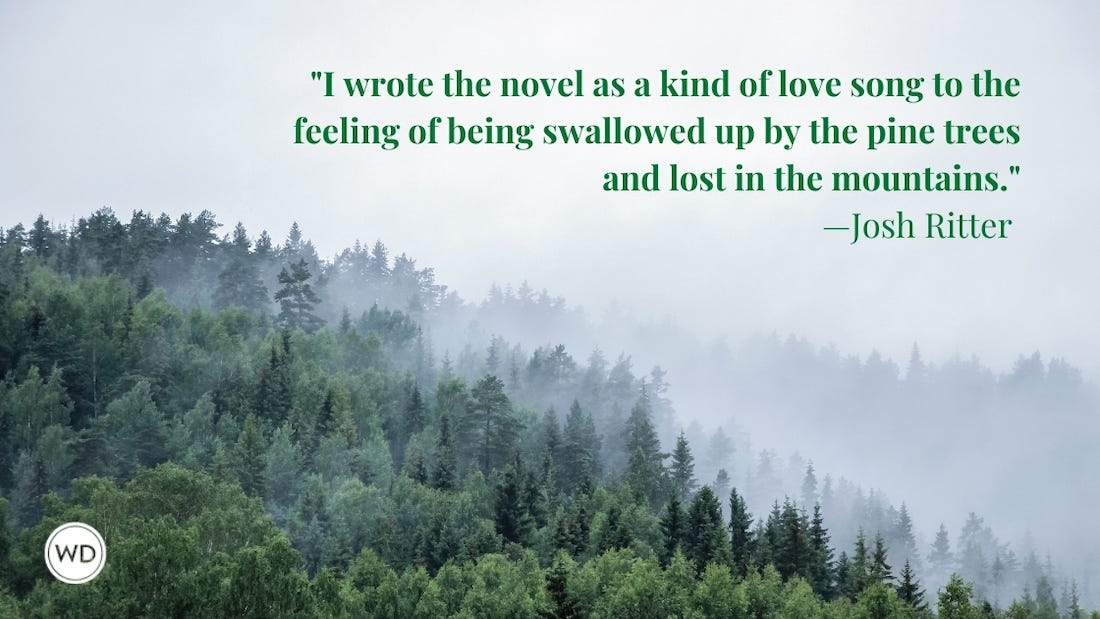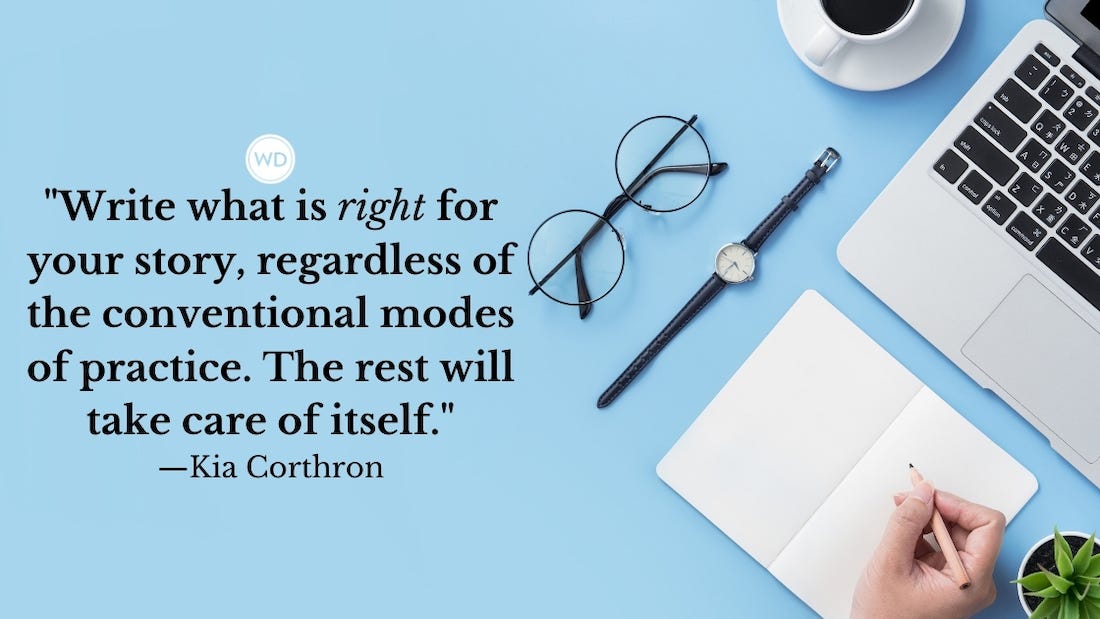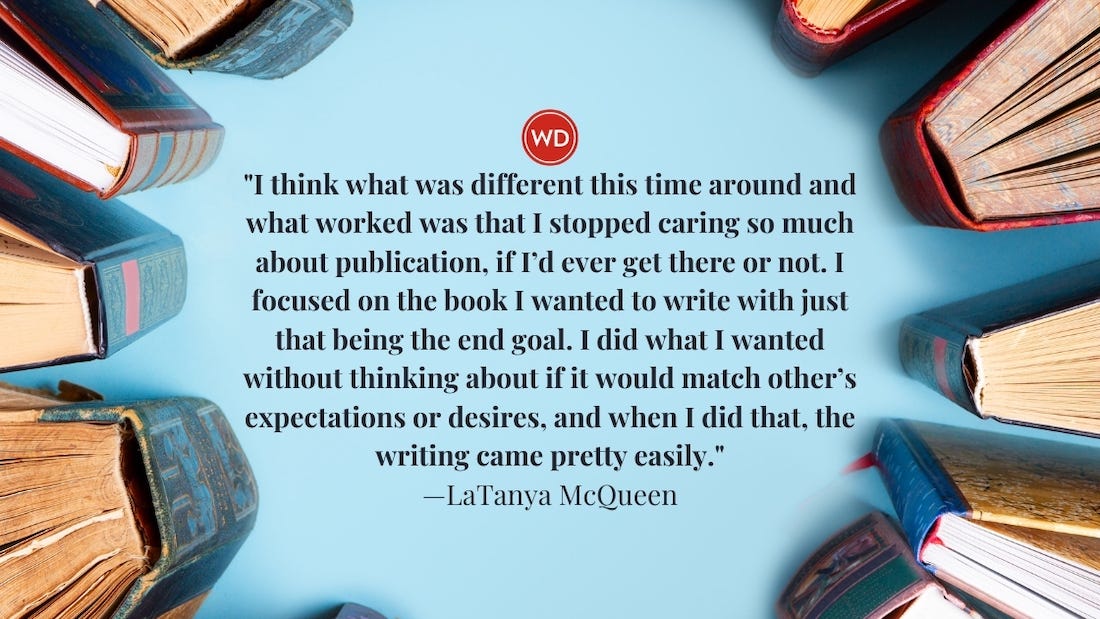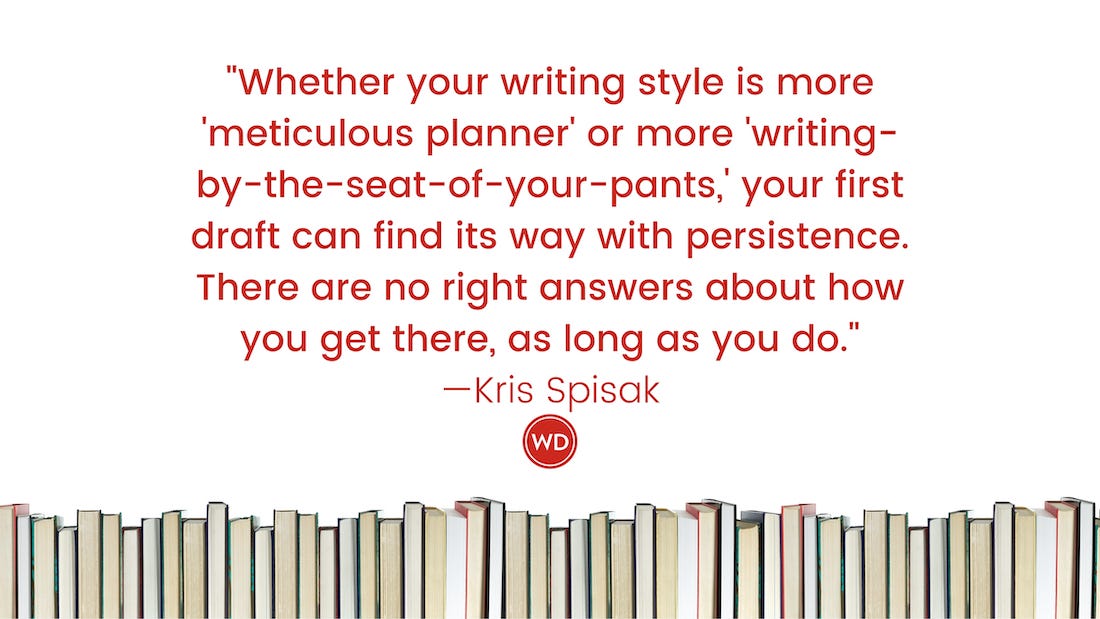How to End a Novel With a Punch
Your closer is the most important incident in the novel, which is why you must know it inside and out so you know how to end a novel that agents want to rep.
Your closer is the most important incident in the novel, bar none. Yes, the opener is critical, but only second in importance to the climax. The opener must impress an agent enough to ask for more pages to help her decide whether or not to represent your book. The opener must impress an editor enough to force him to ask for more pages to help him decide whether or not to buy your book. The opener must impress the reader to take your book home from the bookstore.
But it’s the finale that closes the deal for all three parties—that’s the reason I call it the closer and am going to walk you through how to end a novel.
The Closer Defined
The question is, when I say closer, do I mean the climax, the resolution or both? Let me explain it by using an example. In the novel Gone Tomorrow by Lee Child, the opener is six chapters long. And I suppose you could include Chapter 7, if you want to, because the seamless structure is like a string of linked subway cars. The opener is the entire content of all those chapters. It’s the high-action setup to the novel, and it meets all the above criteria. Think of it as one large incident broken into six or seven smaller incidents. And within each chapter, you might argue, there are other incidents. In the closer, I include the climactic confrontation, which leads to an inevitable, if not reasonable, resolution. Don’t try to get too academic about how many incidents you should include in your closer. Very likely, you will take the climax as several incidents, and the resolution, which follows a shorter one.
I don’t mean to tell you that your opener requires a minimum of seven incidents. Or that a closer must contain anywhere from two to 13. I can tell you this: The editor who bought my first novel said that after he decided he liked the opening 50 pages, he skipped right to the ending to see if I could deliver in the climax. Only then did he make an offer on the book. He didn’t worry too much about the resolution. I doubt many editors do. If you’ve written a good story, your resolution will write itself.
Key Questions for the Closer
What readers say after they put your book down matters more for your sales than what they say when they pick it up. So, ask yourself these questions about your closer:
Is this Incident a titanic final struggle?Blow away your readers. Simple as that. No incident that precedes the closer should be more exciting. This is the payoff for your fiction.
Does the heroic character confront the worthy adversary?Absolutely mandatory. No exceptions.
Is the conflict resolved in the heroic character’s favor?Not mandatory. But it’s usually the most popular choice, meaning most readers like it that way, meaning it’s a more commercial choice.
Does the heroic character learn an important lesson?Your hero’s scars cost him something, but he also wears them like badges of learning. A reader who walks away from the novel with a so-what attitude will kill you in the word-of-mouth department.
Does the Incident introduce new material? It shouldn’t. Everything that appears in the closer should have been set up earlier in the story. Worse yet, new material introduced by the writer rather than the hero is flat-out cheating. Readers hate that.
Does the Incident rely on flashbacks? Avoid them at all cost in the closer. Keep the story moving with action and dialogue.
Does the Closer use exposition? Explanation causes this vital incident to drag. It’s the one thing I hate about parlor mysteries. If the heroine has to give a 10-minute lecture to show how brilliant she is, the story has failed in some way. The genius should be self-evident, both in the heroine and in the author’s work.
Is the conclusion logical?Just as all that goes before should point to the closer, even if many signposts have been artfully concealed, all that flows from the decisive moment of climax should be reasonable. An ending with a twist is fine, but no tricks.
Does the Closer leave us feeling a sense of wonder?Contrary to the conventional wisdom about impressions, your novel will be judged by its final impression, not its first. What will readers tell their friends after they put down your story?
Bottom line? You must create a climactic incident that surpasses any other incident in the novel in terms of action, conflict, imagery and dialogue. Blow your readers away with the height and depths of the emotions you achieve. Leave them feeling disadvantaged that they might never meet your heroic character again (unless, of course, you write another novel featuring her).
Your ending isn't the only thing that needs to be perfect in order to get published? Start at the beginning: The First 50 Pages
Become a WD VIP and Save 10%:
Get a 1-year pass to WritersMarket.com, a 1-year subscription to Writer’s Digest magazine and 10% off all WritersDigestShop.com orders! Click here to join.
Also check out these items from the Writer’s Digest’s collection:
Write-A-Thon
The Novel Writer’s Tool Kit
Elements of Fiction Writing: Characters & Viewpoint
How to Write a Book Proposal, 4th Edition
Breathing Life Into Your Characters
No More Rejections
Writer’s Digest Weekly Planner
How to Land a Literary Agent (On-Demand Webinar)
Writer’s Digest Magazine One-Year Subscription
Writer’s Digest 10 Years of Writer’s Digest on CD: 2000-2009









